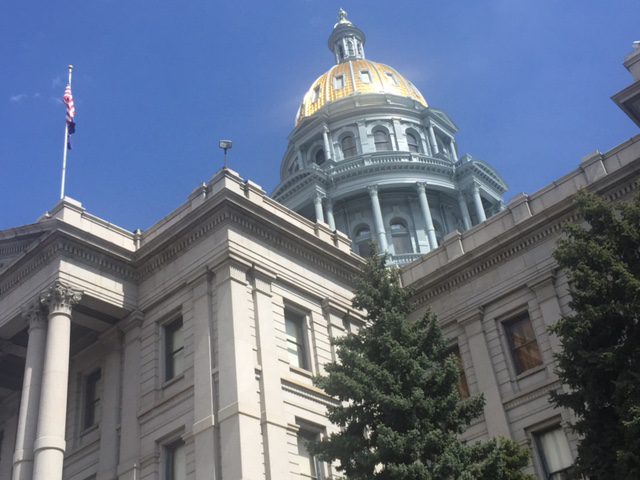A summary of the list of recommendations on the implementation of the OBBBA in Colorado regarding public benefits systems and work requirements.
Recent articles
CCLP testifies in support of Colorado’s AI Sunshine Act
Charles Brennan provided testimony in support of Senate Bill 25B-004, Increase Transparency for Algorithmic Systems, during the 2025 Special Session. CCLP is in support of SB25B-004.
Coloradans launch 2026 ballot push for graduated state income tax
New ballot measure proposals would cut taxes for 98 percent of Coloradans, raise revenue to address budget crisis.
CCLP statement on the executive order and Colorado’s endless budget catastrophe
Coloradans deserve better than the artificial budget crisis that led to today's crippling cuts by Governor Jared Polis.
Amendment 71 ‘raises the bar’ too high

Policymakers and political observers have long complained that Colorado’s constitution is full of arcane and seemingly random amendments – a few of which have caused some serious fiscal problems for the state. The most vexing amendment of the sprawling document is the so-called Taxpayers Bill of Rights (or TABOR), which has forced perennial spending cuts on education, infrastructure and human service programs and thwarted efforts to inject more funding for affordable housing and health care.
As a result of Colorado’s relatively “low bar” in amending its constitution, Colorado voters typically decide multiple ballot initiatives during each election cycle – leading to a crowded ballot and a cluttered constitution. Indeed, Colorado’s constitution holds 150 amendments compared with only 27 approved amendments for the United States Constitution.
Yet, despite its flaws, we appreciate that the state constitution gives Coloradans an avenue for effecting change when state legislators do not or cannot act. That’s why the Colorado Center on Law and Policy joins others in the advocacy community in opposing Amendment 71, the ballot measure that purports to “raise the bar” by making it more difficult for Coloradans to amend the state’s constitution while severely compromising the ability of grassroots organizations to effectuate change in the state.
If approved by voters, Amendment 71 would require petitioners to gather signatures from at least 2 percent of the registered voters in all of Colorado’s 35 senate districts to place a constitutional initiative on the statewide ballot. It also requires a super-majority of 55 percent of the popular vote to pass a ballot initiative. Supporters of Amendment 71 claim the provisions would ensure that changes to the constitution have broad, statewide support.
However, by requiring petitioners to circulate petitions in remote corners of the state, Amendment 71 would make the costs of collecting the required signatures prohibitively expensive for many campaigns and allow just one Senate district to thwart an amendment that otherwise has broad support.
If Amendment 71 is passed, moneyed interests would hold the upper hand in the democratic process while grassroots efforts (such as the campaign to raise the state’s minimum wage) would face a significant burden getting their measures on the ballot.
Given the state’s limited ability to fund Medicaid and other services for low-income Coloradans at a level that’s even close to adequate, CCLP is concerned that the criteria outlined in Amendment 71 would make any changes to TABOR nearly impossible. It could further cement fiscal constraints that could hurt low-income families and limit our ability to improve the health and well-being of all Coloradans.
We encourage Coloradans to support full access to the ballot by voting “no” on Amendment 71.
-By Claire Levy
